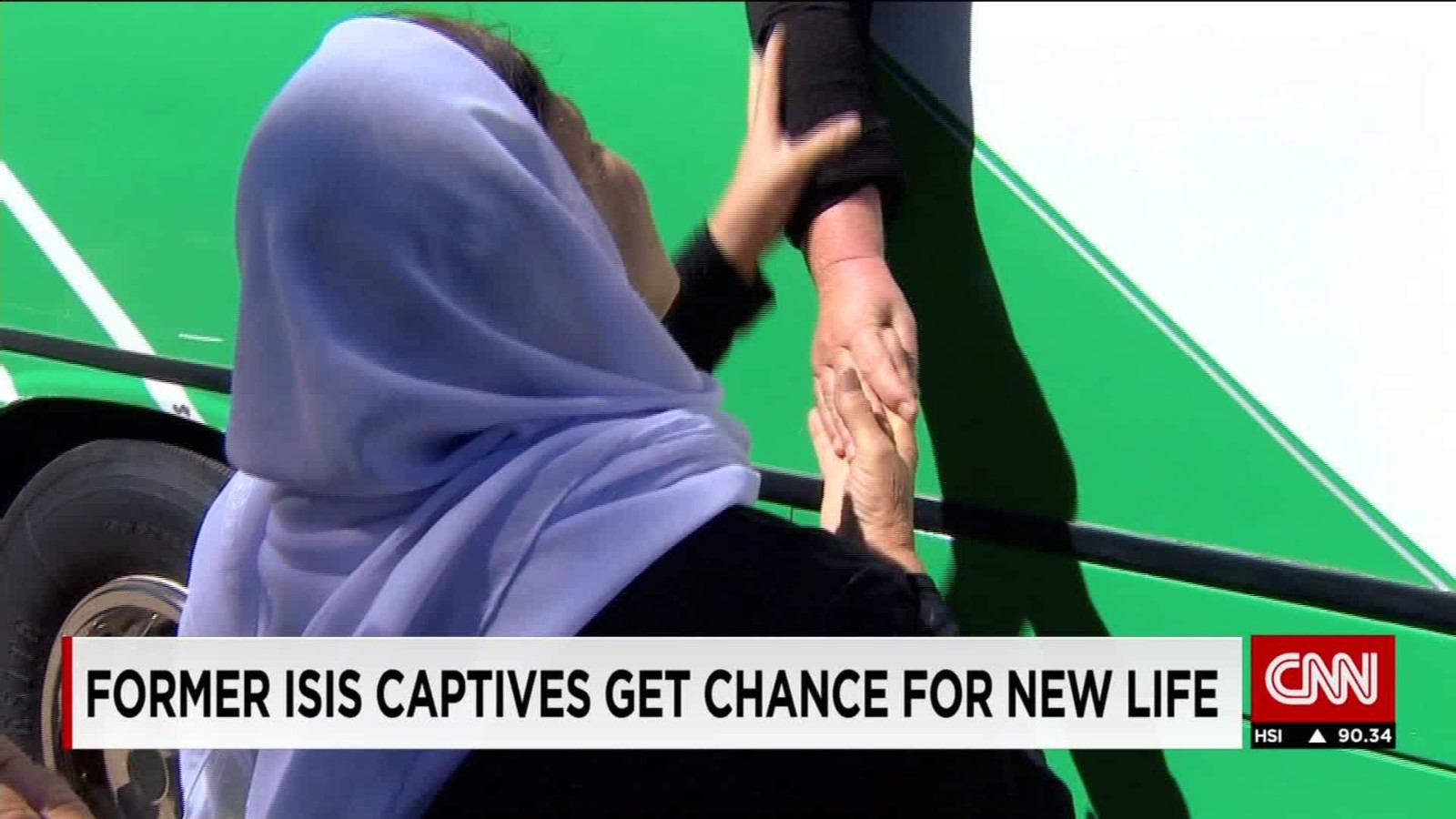It was an escape from hell.
The
terror of the ordeal she -- and so many like her -- had endured was
imprinted on the face of a young girl dressed in purple, as she sat
opposite me on a mercy dash away from Mount Sinjar.
Aziza
Hamad, then 14, was one of more than 30 desperate civilians who made a
mad scramble to get onto an Iraqi military helicopter -- with a CNN team
on board -- in August 2014. Their dramatic journey was captured on camera.
Thousands
of civilians from Iraq's Yazidi religious minority had fled to higher
ground to escape the murderous advance of ISIS militants.
Families
like Aziza's had spent more than a week trapped on the barren heights
of Mount Sinjar, under siege by the fighters, and with little access to
food or water.
The
helicopter that hovered briefly overhead offered them a vital chance of
escape; missing it could have meant their family was separated, perhaps
forever.
Fortunately for the Hamads,
Aziza and eight of her relatives managed to clamber on board, crouching
for shelter, clinging together for comfort and crying as the Iraqi air
crew opened fire with machine guns on suspected ISIS targets during
their flight to safety.
More than a
year after their chaotic escape, CNN tracked down Aziza and her family
to the refugee camp in Iraqi Kurdistan where they now live.
"The
year passed and we're all safe, thank god," says Dunya, Aziza's
18-year-old sister. "But if we went home it would be better."
The
pre-fabricated, two-room containers that the Hamad family now calls
home are a dramatic improvement from the conditions they were living in
not long ago.
For the first seven
months after their escape, the family had little choice but to squat
amid the bare concrete in an unfinished construction site.
"We
used cardboard and plastic sheets for shelter," Aziza recalls. "There
was a lot of smoke ... because we didn't have gas for heat and there
wasn't enough electricity. In the camp it's much better."
Aziza
and Dunya had smiled broadly as we arrived to visit them, but it did
not take long for the trauma of their past year to surface.
In
the middle of a conversation, Aziza's eyes suddenly well up with tears.
"When I see you," she explains, "I remember what happened."
In
the year since they fled their home, the mental and physical health of
Aziza and Dunya's father has deteriorated significantly. He is no longer
able to walk.
During our hour-long
meeting with the family, he sits and stares silently at a wall; the only
time he engages with others is at the mention of his two adult sons,
Fahed and Wahed.
The two men are believed to have been captured by ISIS back in August 2014. They haven't been heard from since.
"We
don't have time to think about the future right now," says Dunya. "All
we're thinking about now is when my dad will stand up on his feet again,
and when my two brothers will return to us."
A
third brother, Karem, 23, left Iraq shortly after the family's flight
from Mount Sinjar to follow the migrant trail from Turkey into Europe,
paying traffickers to help smuggle him across dangerous seas and
international borders.
The
journey cost his family thousands of dollars and took months, but he
made it to safety eventually; Karem now lives in Hanover, Germany.
In
a video call with CNN, he explains that he spends his days in school
learning German, before working for several hours a night on an assembly
line in a factory.
Asked whether he
misses Iraq and his family home in Sinjar, Karem does not hesitate: "No,
that's gone for me. I lost Iraq and Sinjar."
Instead,
he explains: "I want to build something for myself and my future. I
wasn't able to do anything in Iraq. I'm not going to let this
opportunity go away."
Much of the
responsibility for leading the Hamad clan now falls on the shoulders of
another brother, Thabit, who has a wife and three small children of his
own to care for.
Squinting
from beneath a blue baseball cap, he says he is grateful to have found
work as a car mechanic in a town just outside the refugee camp.
But he admits he has little hope of moving the family back to their house in Sinjar any time soon.
"Even
if the Peshmerga liberate Sinjar," he says, referring to the Kurdish
military forces, "our return would be very difficult because there is no
electricity, no running water and no services there.
"I think we're going to stay here for at least a year."
Despite
the competing demands on his time, Thabit takes a moment to watch CNN's
footage of his family's flight from Mount Sinjar on board the
helicopter. The images -- and the memories they spark -- leave him
weeping.
"I just want to start a new life," Thabit explains, wiping away tears. "And I want my family to stay safe and to stay together."
Aziza
is now 15 and a little taller than her older sister. More than a year
after her family's escape, she is still haunted by the past.
One
of the few times she truly looked happy during our conversation was
when asked what she would like to do to the men from ISIS who attacked
her family.
"I would stomp on their
heads and kill them," she said with a smile, repeating insistently: "I
would stomp on their heads and kill them."



No comments:
Post a Comment